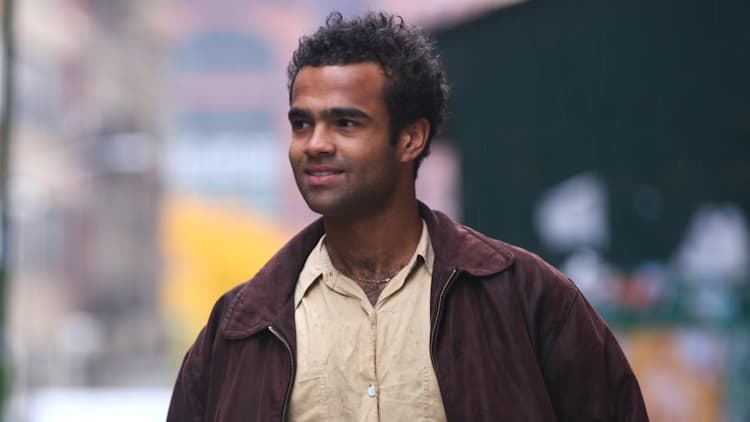It turns out that lackluster benefits or a disappointing salary bid aren't the only reasons someone would be willing to reject a job offer.
Nearly half of U.S. job seekers in high-demand industries like technology, energy and banking say they've turned down an offer because of a bad recruiting experience. That's according to a 2019 survey conducted by PricewaterhouseCoopers, which polled 10,000 U.S. respondents.
An application process that lasts longer than a month will likely deter job applicants from accepting a position, according to PwC's findings. The survey found that 61% of respondents were "ghosted" — had an experience with recruiters who stopped contacting and responding to them — after an interview, which significantly increased the chances they would discourage their friends from applying to the same company.
The survey supports similar findings from a 2019 survey from the American Staffing Association, which found inappropriate interview questions to be the No. 1 deal breaker for candidates.
But there are other less-evident factors that that can leave a positive impression on a candidate during the interview process, according to the survey.
A company seems more appealing if it efficiently uses technology to streamline routine tasks or makes the hiring process easier, like providing a dashboard that shows candidates where they are in the process. On top of that, about 72% of respondents indicated they need to understand the work culture, whether through networking or social events, before accepting an offer, according to PwC.
Even if the recruiting process goes well, there are three key aspects candidates look for beyond salary, PwC found: opportunities to learn new skills, personal flexibility and inclusion. In fact, respondents said they would be willing to give up 12% of their salary on average in exchange for greater flexibility and training.
It can be hard, however, to judge a company based on limited interviews, especially if it doesn't provide networking opportunities beforehand. In that case, Glassdoor, an online career database, suggests taking these six steps before accepting a job offer:
1. Do a gut check
Before you accept a job offer or negotiate the details of your new contract, take a moment to consider how you felt when you were offered the job.
Did you really hope things would work out with this position? Or were you secretly hoping that they would offer it to someone else? Your initial reaction is an important insight into whether or not a job is a good fit, according to Glassdoor.
2. Ask yourself the big questions
Dana Manciagli, a career coach and speaker, suggests asking yourself whether the responsibilities of the job sound like something you would want to do full time. On top of that, she suggests you consider other questions, like whether the environment and the people you would be working with seem pleasant and safe.
If you don't feel like you have enough information to answer those questions, Manciagli advises arranging another meeting until you do, or until you're convinced the job isn't a good fit.
3. Decide if taking this position would help you advance your career goals
Salary is important, but it's not the only thing you should consider for long-term job happiness, according to Amy Gardner, a certified professional coach with Apochromatik.
Even before you start looking for a job, Gardner recommends job seekers create a list of what job qualities they're looking for. Once you have a list, you can evaluate a job offer against the factors you initially recorded.
4. Carefully evaluate the salary and benefits package
When negotiating salary, take into account more than just your yearly take-home pay, Carisa Miklusak, CEO of tilr, an algorithmic hiring company, told Glassdoor.
That's because there can be other benefits a company offers that would make a lower salary worth accepting. For instance, the company may subsidize child care or offer lucrative bonus opportunities.
Benefits and perks don't only make an offer sweeter, but they can also tell you a lot about the company.
For instance, a company that provides a fully stocked kitchen might indicate it cares about the social well being of its employees. Additionally, businesses that offer same-sex partner benefits signal a strong commitment to diversity and inclusivity in the workplace.
5. Understand who you'll be working with on a day-to-day basis
Glassdoor admits this step is tricky, but the more you can find out about your future team, the better prepared you'll be to make an informed decision.
"Whether and how you can get to know people in advance varies depending on whether you are in the same city as the employer, what your role will be, and how big the group is," Gardner told Glassdoor. "But do what you can to get a sense of your future team because they will have a huge impact on both your job satisfaction and your success."
6. Decide whether the company is really somewhere you want to work
Now that you have the offer and have gone over the five previous steps, there's one more thing left to determine: How well does the company fit into your life?
That means not just taking its size and location into consideration, but its entire corporate culture, according to Glassdoor. One way to weed out toxic work environments includes asking those who work there what the company culture is like and then carefully examining how they answer the question.
"Ask about what you'd look for in a healthy work environment," Mikaela Kiner, an executive career coach and CEO of uniquelyHR, said. "That might be access to training, how often people get promoted from within, flexibility, recognition, or teams that celebrate together. If too many of these are missing, it's a red flag."
Don't miss: How to pick the perfect job interview outfit, according to a 'fashion psychologist'
Like this story? Subscribe to CNBC Make It on YouTube!



